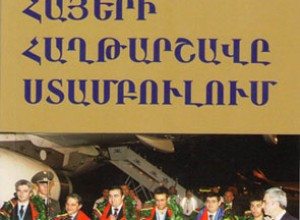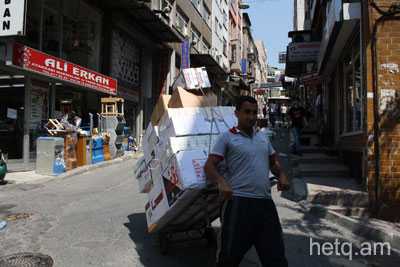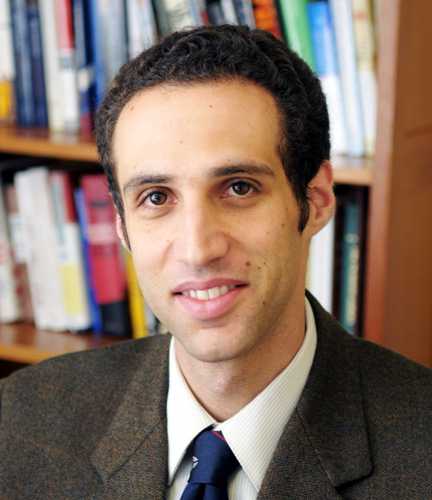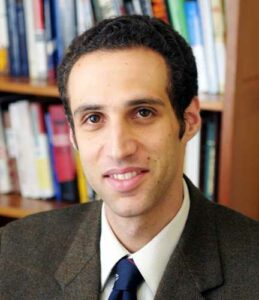ISTANBUL — Artush Mkrtchyan calls it cheese diplomacy. Others speak of informal, or “track-two,” diplomacy. By either name, it is all about building bridges between Turks and Armenians in the absence of formal, or “track-one,” diplomatic relations between their governments.
Mr. Mkrtchyan, 55, an engineer, art critic and activist from the Armenian town of Gyumri has made cheese the medium of contact and cooperation with the neighboring town of Kars, in Turkey.
Less than 70 kilometers, or 45 miles, apart but separated by a border that has been closed for nearly two decades, cheese makers in Gyumri and Kars, along with colleagues in the nearby Georgian town of Ninotsminda, produce and market a “Caucasian cheese,” invented by Mr. Mkrtchyan in 2008 to foster cross-border cooperation.
“My cheese diplomacy actually preceded the soccer diplomacy between our countries,” Mr. Mkrtchyan said Monday as he walked into a meeting in Istanbul organized by Support to Armenian-Turkish Rapprochement, an umbrella group for like-minded activists from Turkey and Armenia.
He was referring to a brief rapprochement, kicked off by a visit by President Abdullah Gul of Turkey to Yerevan, Armenia, for a soccer World Cup qualifying match between the two countries’ teams in September 2008, followed by the visit of President Serzh Sargsyan of Armenia for the return match in Bursa, Turkey, in October 2009.
The visits seemed at the time to herald a breakthrough in relations between the two countries, which are weighed down by bitter disagreement over whether or not the 1915 massacres of Armenians in Anatolia amounted to genocide — and by the territorial dispute between Armenia and Azerbaijan over the enclave of Nagorno-Karabakh, in which Turkey has sided with Azerbaijan.
Although Turkey was among the first countries to recognize Armenia in 1991, after the dissolution of the Soviet Union, the border between the two countries has been closed since 1993, when Turkey suspended relations to protest Armenian advances on Azeri territory.
In the year framed by the two soccer matches, Armenia and Turkey — with the support of international mediators — negotiated and signed two protocols to re-establish diplomatic relations, open their border and foster economic, cultural and consular cooperation.
But faced with opposition from nationalists in both countries and pressure from Azerbaijan on Ankara, relations froze again within months. The protocols have never been submitted for parliamentary ratification in either country.
With presidential elections due in Armenia next year and in Turkey a year later, a new thaw is unlikely soon, Hasan Selim Ozertem, an Eurasian affairs expert at the International Strategic Research Organization, a private analytical institute in Ankara, said in an interview. “It is a vote-losing issue in both countries,” Mr. Ozertem said.
On top of that, Prime Minister Recep Tayyip Erdogan of Turkey, bowing to veiled threats from Azerbaijan of gas-price increases and exclusion from pipeline projects, has vowed not to move forward with the protocols until the Nagorno-Karabakh conflict is resolved.
Still, the protocol process has not been a complete failure, Gevorg Ter-Gabrielyan, director of the nongovernmental Eurasia Partnership Foundation in Armenia, said in Istanbul this week. “Look at all the bonds that have been created here,” Mr. Ter-Gabrielyan said, indicating the crowd of businessmen, artists, social workers, journalists and academics from both countries exchanging hugs and greetings in Armenian, Turkish and English as they arrived for the meeting.
“These bonds collectively form a capacity of conflict prevention that did not exist five years ago,” Mr. Ter-Gabrielyan said. “This is a result of the boost by the protocol process.”
The activists, many of them bleary-eyed from the night flight from Yerevan that is the only link between the two countries, were gathered in Istanbul to review two years of track-two contacts, supported by a grant from the U.S. Agency for International Development, and to plot the way forward in the face of unfavorable political conditions and the imminent end of the grant.
Participants listened as an Armenian activist described the impression a visiting Turkish youth group had made on schoolchildren in an Armenian village. “The kids could not believe they were going to see a real Turk, it seemed so distant to them, so historical,” the activist, Gayane Mkrtchyan, said. Afterward, the children had remarked that the visitors “looked just like us,” she said.
Youth-group exchanges and media visits were among the activities sponsored by the Armenian-Turkish umbrella group, backed by the two-year Usaid grant that ends this month. Other activities included business conferences, a joint association of travel companies to foster regional tourism, academic workshops and cooperation on policy research, coproductions of films and other cultural projects.
“This kind of track-two diplomacy is really important,” Mr. Ozertem, the Eurasia expert, said by phone from Ankara. “When relations are bad between two countries, the damage deepens if there is no contact between societies.”
“This is damage control, and we need it,” he added.
With the Usaid funding running out this month, some projects have been successful enough to go forward on their own: The Armenia Turkey Cinema Platform, for one, hopes to show coproduced films at the Tribeca and Sundance festivals in the United States.
Yet frustration was tangible at the Istanbul meeting.
“I have been working for an open border since 1997, and I am tired of hitting my head against the wall,” said Arsen Ghazaryan, president of the Union of Manufacturers and Businessmen of Armenia. Still, he said, he would not stop trying. “It is the responsibility of our generation.”
Yurdum Hasgul Cagatay, a Turkish entrepreneur who recently led a group of Kurdish businessmen from the southeastern Turkish town of Diyarbakir to Yerevan to sign a cooperation agreement between the two towns’ Chambers of Commerce, was more upbeat on the same theme. “Open the border, we want to make money,” Ms. Cagatay said.
Much of the brainstorming in Istanbul centered on ways to draw the Armenian diaspora, widely seen as hard-line, into the process. Another focus was on how to keep up contacts, and momentum, after the end of the $2.4 million project. “In both countries we are few, we need to stay together,” said Mr. Ghazaryan, the Armenian business leader.
Mr. Ter-Gabrielyan, director of the Eurasia Partnership Foundation, said it would take several weeks to sift the proposals generated by the meeting and decide how to move forward.
In Gyumri, meanwhile, Mr. Mkrtchyan, the father of cheese diplomacy, has already moved on — to wine. Under the label “Caucasian Bouquet,” he has persuaded producers to start marketing their wines together — not only Turkish, Armenian and Georgian, but also wineries in Azerbaijan and Karabakh.







